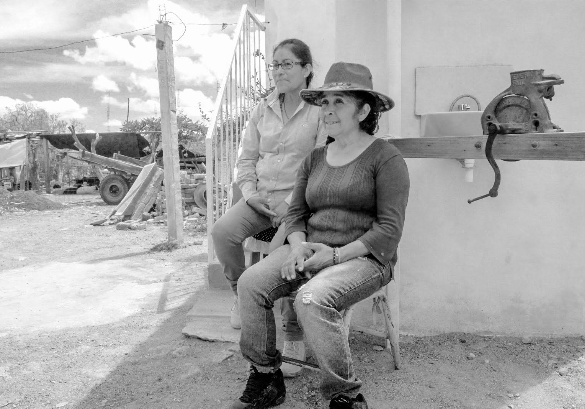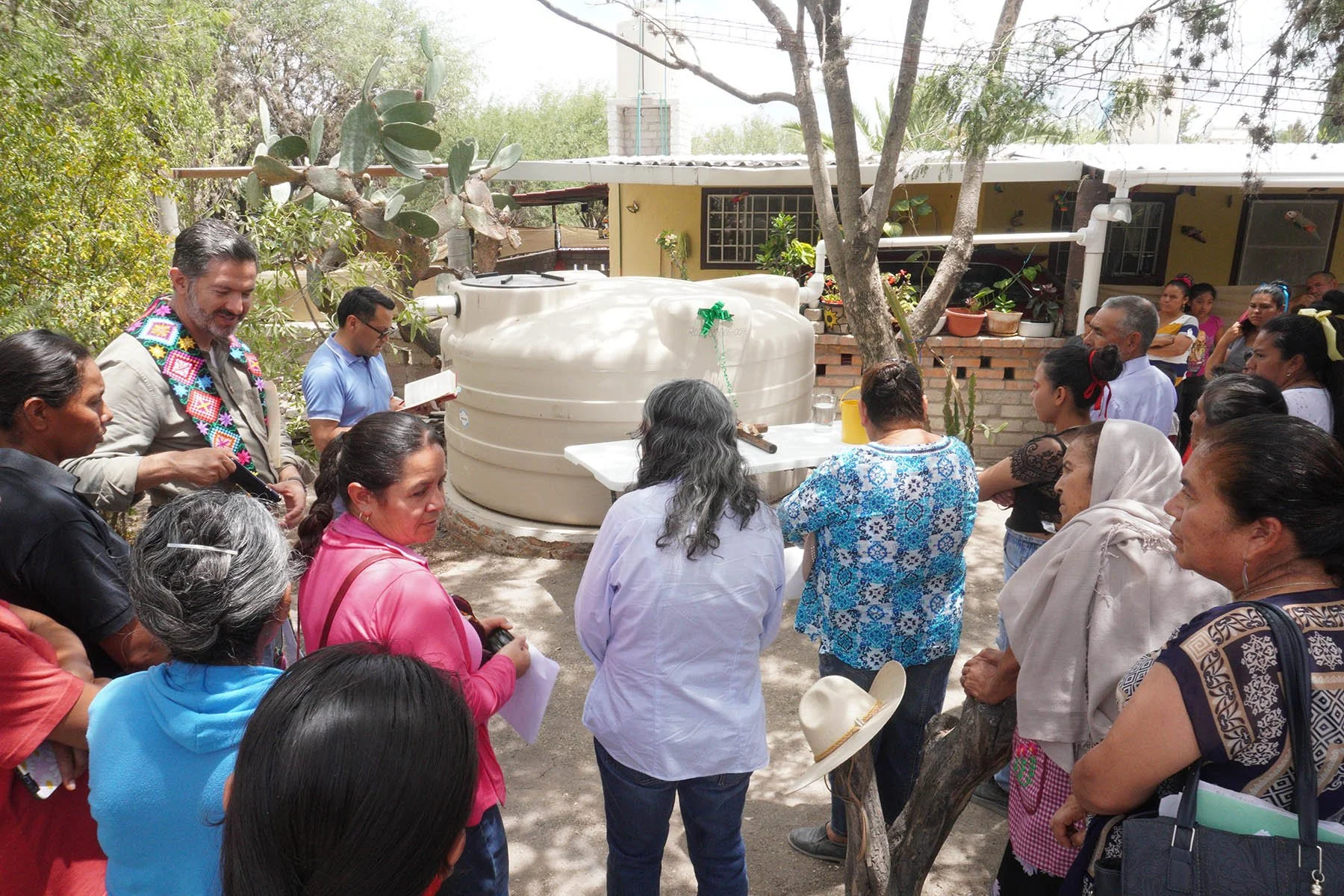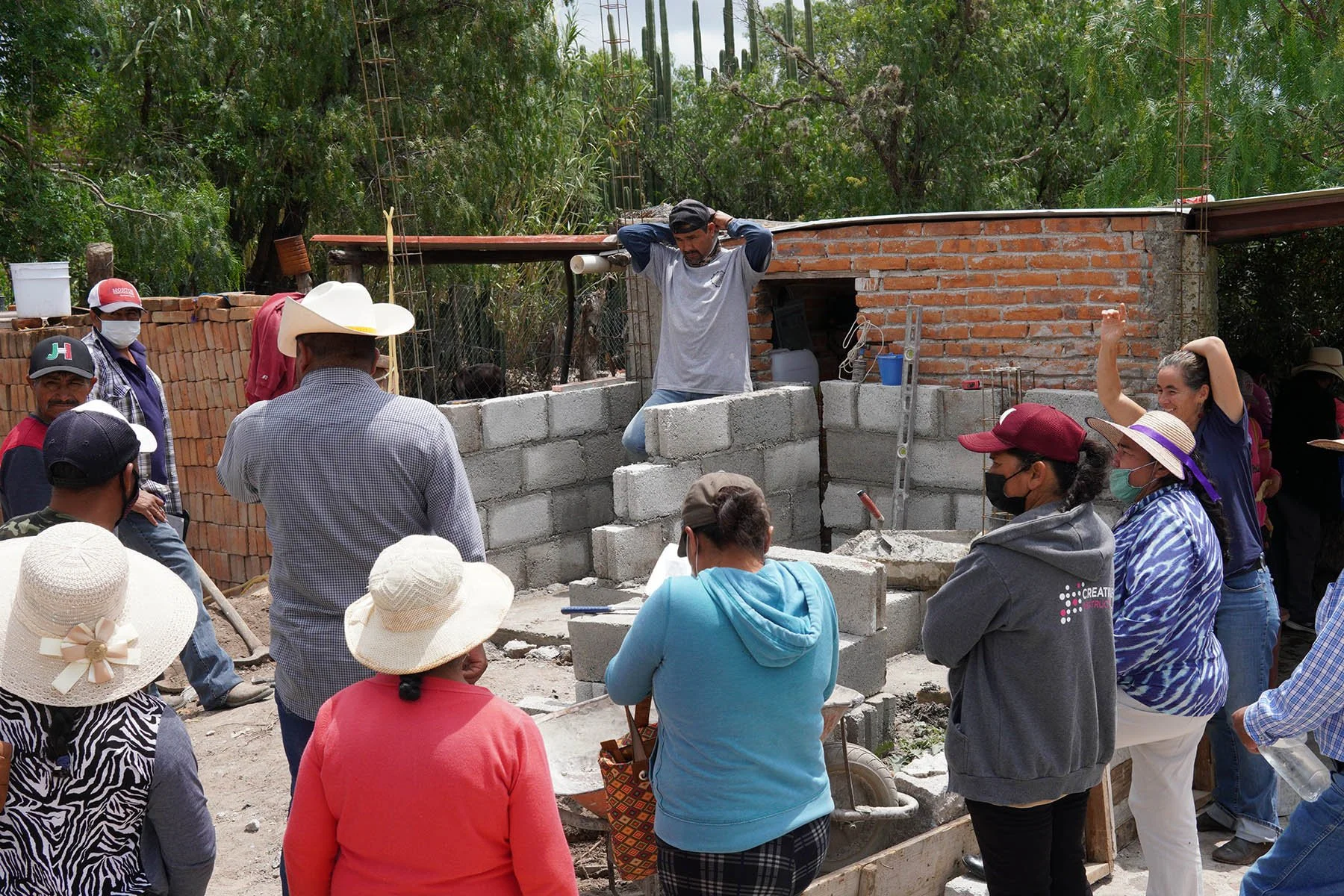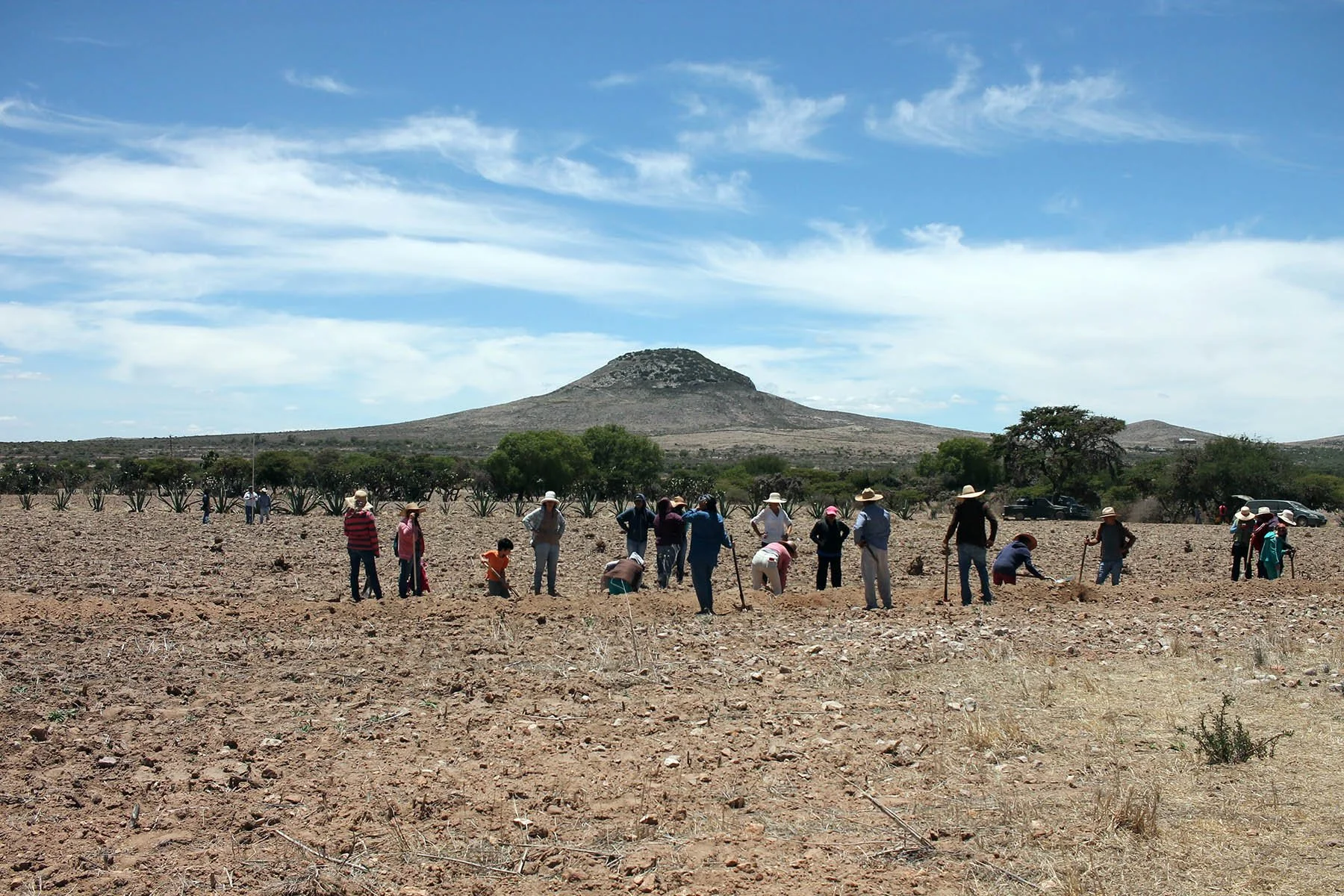From being beneficiaries of water technologies to becoming passionate water advocates
Creating a United Community:
Manuela and Erika’s Inspiring Journey - Addressing Water Scarcity and Contamination in the Community of San Cayetano
In the heart of San Cayetano, a rural community nestled northeast of San Miguel de Allende, lies an extraordinary tale of resilience and determination. Manuela and América (“Erika”), two dedicated members of this tight-knit community, have faced the harsh reality of water contamination and extreme water scarcity for years.
“Today we only have water two days a week, for two hours, and it’s done,” laments Manuela, but then furthers, “and that’s why we got involved.”
Working together at the San Cayetano Community Center with Father Juan Carlos Zesati, a long-time “Caminos” collaborator who has been tirelessly advocating for environmental and water justice in the region, Erika and Manuela, along with more than 60 other families, have been part of creating a united community. Together, they have been championing water awareness, conservation, and bringing water solutions for thousands of those who are most impacted.
Under the leadership of Father Juan Carlos, and in collaboration with Caminos de Agua and CUVAPAS (see our email from earlier in this campaign to learn more about this important grassroots partner organization), San Cayetano and dozens of neighboring communities throughout the surrounding region have taken severe water contamination and scarcity issues into their own hands.
Photo: Father Zesati (first from right) blessing a Rainwater Harvesting System during an inauguration close to San Cayetano (Luz Villafuerte of CUVAPAS is also in the background)
We first began partnering with Manuela and Erika years ago, when the families of both women received their own Rainwater Harvesting Systems through a project between Caminos de Agua and CUVAPAS in 2020. Since then, Manuela and Erika have volunteered to help other families in San Cayetano build their own Rainwater Harvesting Systems. And, in July of 2022, both Manuela and Erika’s families became some of the first beneficiaries of our new Composting Toilet Program as part of our larger “Agua y Salud” (Water & Health) Project – a three year initiative, led by Caminos de Agua and including many partners like CUVAPAS, to expand clean water and sanitation to thousands of people, in more than 50 communities including San Cayetano, throughout the greater region.
We sat down with Manuela and Erika to catch up and reflect on their involvement in these issues. Their story is a testament to the transformative power of community-driven water projects. When asked about the significance of working together, for more than 10 years, on environmental and water projects in their community, Erika replied,
"Being united for a common cause, which is ensuring better health for our children and grandchildren, is what drives us. As they say, unity is strength. Working together is essential because without unity, we cannot succeed."
Manuela and Erika stated that, through their experiences, they see how some individuals initially believe they can tackle these challenges on their own, but only later realize the value of collective effort, stressing that the best results come from group collaboration.
Manuela explains,
"Before Father Juan Carlos Zesati arrived, we attended church, and that was it. But when Father Juan Carlos came, our lives changed. We started engaging in activities and projects, such as rainwater harvesting systems and recently introduced eco-friendly toilets [with Caminos de Agua and CUVAPAS], which didn't exist here before. Father Juan Carlos connected God, nature, life, and our community in a unique way. He called us to the parish, explained the water issues, and that's when we formed the water committee."
Photos: (top) Father Zesati (first male on the left) together with several community members in the inauguration of a Rainwater Harvesting System. (Bottom) a group of community members and staff from Caminos working on the construction of a Dry Toilet.
Manuela, who has been a part of the water committee since 2014, added,
"Our community started as several small groups of people coming together to make a difference. Some embraced this work, while others didn't. I enjoy supporting my parish and my community."
Both Manuela and Erika stressed the importance of expanding awareness beyond their own personal concerns, highlighting that many communities worldwide suffer from water scarcity or contamination. They see their work as a small contribution to addressing this global issue. As Erika furthered,
“It’s not about me just having my rainwater harvesting system and then becoming stagnant… My purpose is to move the community forward… It’s about continuing to know more, continuing to learn. We’ve been working together for a long time with this group, but one never stops learning.”
When asked how they would best describe the most important aspects of this work, they both agreed on the term "United Community." Manuela explains,
"A United Community is crucial because it transforms individuals who may have been introverted or indifferent, like me, into active social contributors. We share knowledge and experiences, and we strive for a better quality of life for everyone."
Erika adds,
“It’s so that all of [our community] San Cayetano has a better life. This is our way of moving forward.”
Today, Manuela and Erika continue to engage with water projects, educating, organizing, and working hard to assure their neighbors have access to safe drinking water and dignified sanitation. Their story serves as a compelling example of how technological implementation processes extend beyond machinery, highlighting the central role of humanity and community organization that makes this work possible and, more importantly, successful.
Their journey to becoming active advocates and educators within their community is one that resonates. Others in their community, and well beyond, have been encouraged to unite and expand clean water solutions to many, many more. Over the past several years, quarterly gatherings, known as "Water Learning Communities," have taken place regularly in San Cayetano – bringing together dozens of community leaders from across our watershed to share experiences related to their shared territory, water situation, and lives amidst an ever-evolving crisis. Together, we forge a path towards a more sustainable and water-secure future.
Photos: A group of community members doing collective work in the "Living School" program as part of our larger Water & Health Project, outside of San Cayetano.






